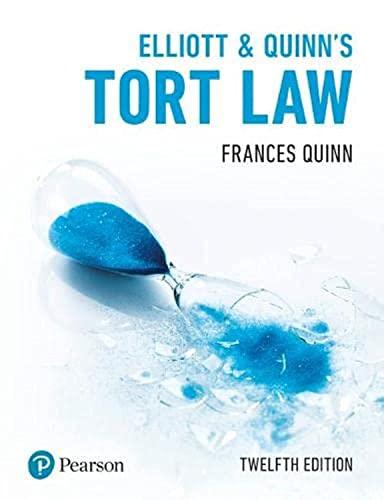Answered step by step
Verified Expert Solution
Question
1 Approved Answer
Search of containers and Consent search Adam is walking in a train station, with a briefcase in his hand. The police have probable cause to
Search of containers and Consent search
- Adam is walking in a train station, with a briefcase in his hand. The police have probable cause to believe there are drugs in the briefcase. Can the police stop Adam to search the briefcase without a warrant?
- The police have probable cause to believe there are drugs in Adam's briefcase. Adam walks out of the train station and gets into his car. He puts the briefcase inside the car and drives away. Two blocks away, the police stop the car and search the briefcase without a warrant. Is the search legal?
- The police have probable cause to believe there are drugs in Adam's briefcase. Adam walks out of the train station and gets into his car with the briefcase. Two blocks away, the police stop the car. The police search the briefcase and find drugs in it. The police then open the glove compartment and find a stolen i-Phone. Is the search of briefcase justified? Is the search of the glove compartment justified?
- The police have probable cause to believe there are drugs in Adam's briefcase. Adam walks out of the train station. He would not get into any car and plans to walk home. The police do not want to see Adam go back home with the briefcase and drugs. What action can the police legally take to seize and search Adam's briefcase without obtaining a warrant?
- The police stopped Charlie's car for speeding. They asked Charlie whether they could search his car. Charlie thought that he could not refuse the request and he gave consent. In the car, the police found drugs and an illegal gun. Charlie's lawyer argues that the police search was illegal, for the police did not inform Charlie of his right not to give consent. The lawyer argues that because Charlie did not know his right, his consent was not voluntary. Was Charlie's consent voluntary? Was the police search legal or illegal?
- Fred and George lived together in a house. The police suspected Fred's involvement in a robbery of a jewelry store. The police did not have probable cause to search Fred's house. One day, they came to Fred and George's house. The police knocked the door and George answered it. The police asked for consent to search the house. George gave consent and invited the police in. At this time, Fred was in the basement watching TV. The police started to search and found stolen rings in the kitchen. At this moment, Fred came up. He immediately asked the police to leave, stating that he would not give consent to search the house. One officer ignored Fred and continued to search. He found two stolen necklaces. At this point, the police decided to stop the search. The police left the house. The discovery of the stolen property in the house gave the police probable cause to search the house. A search warrant was issued. The police went back and conducted a full-scale search of the house. They found five stolen watches in the house. Analyze all legal issues involved and discuss whether the stolen items found can be used as evidence against Fred.
Step by Step Solution
There are 3 Steps involved in it
Step: 1

Get Instant Access to Expert-Tailored Solutions
See step-by-step solutions with expert insights and AI powered tools for academic success
Step: 2

Step: 3

Ace Your Homework with AI
Get the answers you need in no time with our AI-driven, step-by-step assistance
Get Started


